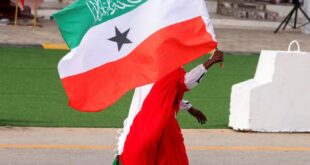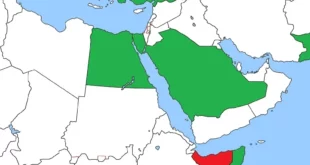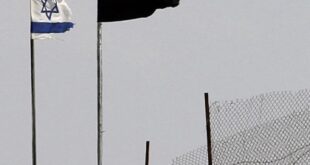The United Nigeria’s military says it is investigating reports that Boko Haram leader Abubakar Shekau has died after blowing himself up to avoid capture by a rival terrorist group. Despite past reports claiming Shekau’s death, which proved to be false, many Nigerians are hoping this time that they may finally be rid of the militant Islamist.
The latest report on Abubakar Shekau’s death this week may be the most widely believed claim about the death of the Boko Haram group leader in the last five years.
Shekau reportedly detonated a body-strapped explosive Wednesday evening after he and his men were overpowered and surrounded by rival group Islamic State of West Africa Province, or ISWAP, during a fierce gun battle in his Sambisa Forest hideout.
While the Nigerian military has said it is investigating the claim, many people like Abuja resident Kelvin Godwin are already rejoicing.
“At this point, I’m quite happy that he’s dead and I pray he’s dead dead dead for real and, that alone will probably reduce the insecurity we have in Nigeria because their leader is dead,” said Godwin.
But some security experts are skeptical. Ebenezer Oyetakin says it is too early to celebrate.
“Everyone, including the Nigerian military, has all the reasons to doubt whether he has been captured or committed suicide, as some claimed. He seems to be not only a cat with nine lives, I think it’s more than eighteen lives, because in the past both military, joint military and all of that have claimed he was killed,” Oyetakin said.
The Nigerian government has battled a militant Islamist insurgency started by Shekau-led Boko Haram since 2009.
In April 2014, the group rose to global notoriety after the audacious kidnapping of 276 schoolgirls from a government secondary school in the town of Chibok.
But two years later, some of Shekau’s fighters defected, pledging their allegiance to the Islamic State militant group and created the ISWAP. A power struggle between the two groups has simmered ever since.
Oyetakin said if Shekau’s death is verified, rivalry among militants could be an opportunity for the Nigerian military to boost its offensive against the insurgents.
“I only hope that the regional security forces, namely Chad, Niger, Cameroon and Nigeria, should come together strongly and leverage upon this weakness that is ongoing because they’re still fighting themselves. The Shekau people are still fighting back in resistance, the other people are in pursuit,” Oyetakin said.
Experts say Shekau’s death could also allow a more tactical terrorist force with foreign affiliations to flourish in Nigeria.
Attacks from the Boko Haram and ISWAP factions are responsible for killing more than 30,000 people in Nigeria and displacing millions from their homes.
 Eurasia Press & News
Eurasia Press & News



